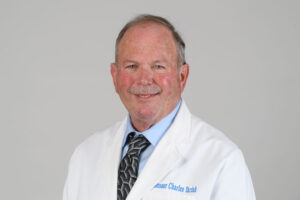
Professor Charles Yarish received his Ph.D. from Rutgers University in 1976 and then joined the faculty at the University of Connecticut where he is in the Department of Ecology & Evolutionary Biology and The Department of Marine Sciences. He has also been an adjunct Professor of Marine Sciences at the State University of New York at Stony Brook, visiting Scientist at the Biologische Anstalt Helgoland, Germany, a visiting Professor of Marine Biology at the University of Groningen, The Netherlands, and a Guest Professor at Shanghai Fisheries University, China. He has served with many organizations including the International Executive Service Corps’ Aquacultural Project (Kenya), the Organizing Committee & the Executive Secretariat for the Vth International Phycological Congress, Qingdao, China, and as a member of the RCN for the US National Science Foundation genome project on Porphyra. Professor Yarish has been an invited participant in many international invited symposia and meetings in Canada, Chile, Cuba, Germany, Ireland, Japan, People’s Republic of China, Mexico, Portugal, South Africa, South Korea, Spain, The Netherlands and the USA, which have dealt with the ecophysiology, biogeography and aquaculture of seaweeds. At UCONN, he developed an internationally known Seaweed Marine Biotechnology Laboratory for seaweed R&D. He is intimately involved in the development of the global seaweed aquaculture industry and in particular in the USA. He has published extensively, and edited several books. In addition to receiving a number of awards over the course of his career, in 2019 Professor Yarish received the Phycological Society of America’s Award of Excellence for his sustained scholarly contributions in, and impact on, the field of phycology over his career.
Arranged by Bryan Hooper
Bryan’s summary of the talk:
Professor Charles Yarish of UConn educated and enlightened members with his talk on the ecological and economic benefits of seaweed, and the development of the aquaculture industry both globally and locally.
Worldwide, the industry produces 66 billion pounds of product, representing around $11 billion in value. The market has grown at an average annual rate of 8% since 1970, with Asian countries leading the growth driven by a shortage of agricultural land. China represents 48% of world production, with the US virtually nowhere. Main uses for seaweed products include food, animal feed, fertilizers and biomass for fuels. A major extracted class is phycocolloids such as alginates, carrageenans and agars, products that are used, for example, in texturizing, thickening, and emulsifying, as well as a range of medical uses, including antivirals and anti-fungal agents. The US imports almost 16 million pounds of dry seaweed and produces another 85-95,000 pounds via aquaculture and wild-grown. Prices for derived products range from 50¢ a pound for commodity colloids up to $2,000 for specialties for pharmaceutical uses.
Professor Yarish has been working on developing the growth of kelp in Long Island Sound for over thirty years, coping with the obstacles raised by environmental regulations, license requirements and recreational needs. He explained that seaweed farming requires no fresh water or fertilizer, helps reduce carbon dioxide and nitrogen levels, and complements the shellfish industry. Two key products are grown, gracilaria (red seaweed) in the summer months and saccharine (sugar kelp) as a winter crop.
There are currently three open water seaweed farms in the Sound, in the Bronx, Branford and Fairfield. Across the country, from a zero base ten years ago, there are now over 70 farms, with most centered in Maine, Connecticut and Alaska. The industry is considered an opportunity for workforce growth, and the Algae Technology Educational Consortium was established to promote this initiative. The potential for development of biomass as an energy resource has been recognized by the Advanced Research Projects Agency – Energy of the Department of Energy through funding research on microalgae to examine scalable, cost competitive and sustainable biomass production.
Projects being worked on by Professor Yarish include:
- Mechanized production and harvesting of tropical seaweeds in the Gulf of Mexico and the Caribbean Sea
- Scalability of coastal/offshore production in Alaska and Connecticut to grow sugar kelp
- Selective breeding technologies for scalable offshore farming to increase productivity 10-20% per generation
- The further development at UConn of kelp breeding technology
However, perhaps the greatest global benefit from current seaweed research projects might come from studies underway between Penn State and UConn on the use of the macroalgae Asparagopsis in cattle feed. It has been demonstrated to reduce methane emissions from cows by up to 99% in some cases, and if widely applicable and adopted could lead to a major reduction of this carbon pollution source.
Presentation video: https://youtu.be/jFnVv3aXD3s
